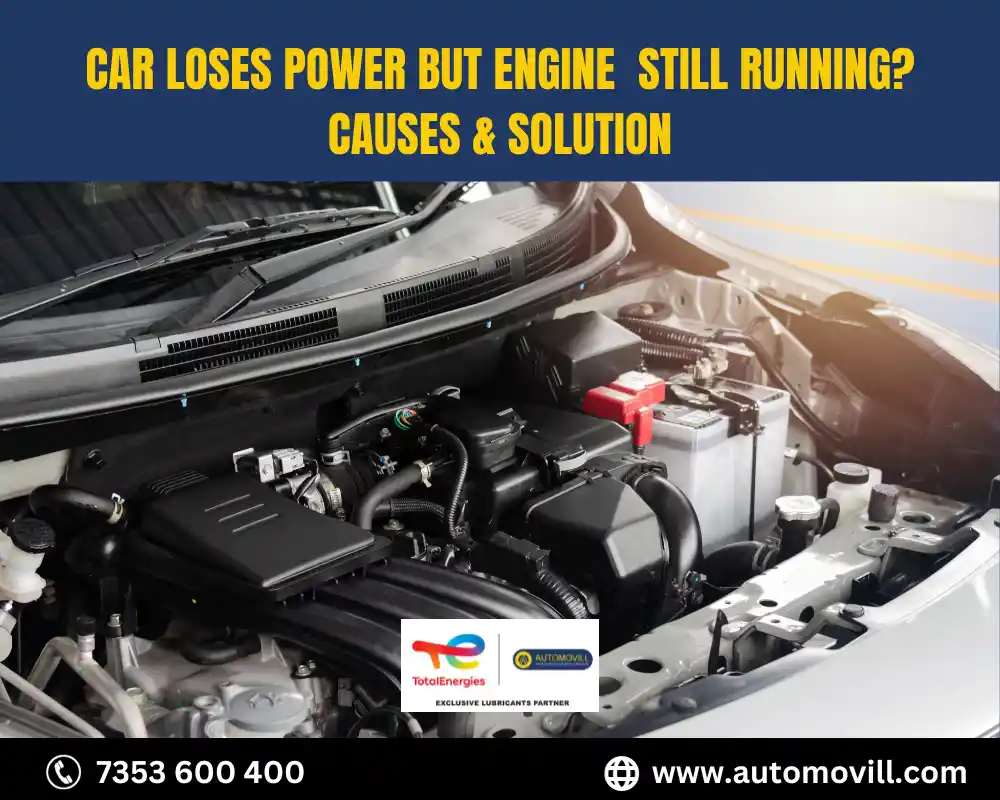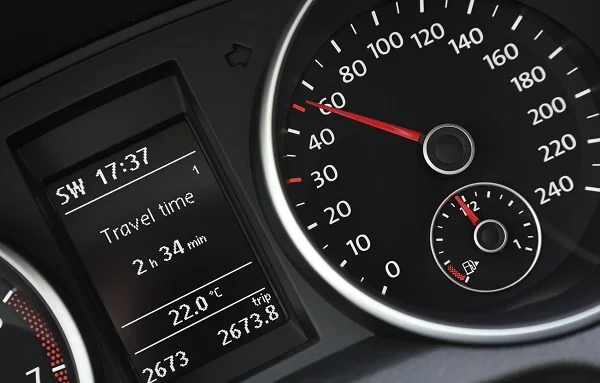
Experiencing a sudden and perplexing loss of power in your car can be incredibly frustrating, leaving you wondering why your engine continues to run but fails to deliver the performance you expect.
It could be dangerous when you are going on a highway and trying to overtake but your car engine not producing enough power.
In this blog, we will discuss the various reasons behind this issue, helping you understand and diagnose the problem effectively.
Common Causes of a Car Losing Power

1. Clogged Fuel Filter
A fuel filter function is to prevent impurities and debris from entering the engine. But when the fuel filter gets clogged, it leads to reduced power. It may also damage the fuel injector. Watch out for symptoms like difficulting in starting or poor engine performance. The solution is to replace or clean the fuel filter.
2. Low Oil Pressure
Low oil pressure can cause the engine to lose power and result in symptoms like engine misfires. Diagnosing and repairing fuel pump or pressure regulator issues is necessary to resolve this problem.
3. Spark Plug Issues
Spark plugs play a crucial role in combustion. Faulty spark plugs can lead to rough idling and power loss. Symptoms of faulty spark plugs include engine misfire, difficulty in starting the engine, and sudden drop in fuel economy. Regular maintenance including replacing spark plugs.
4. Ignition Coil Failure
A failing ignition coil can disrupt the ignition process, affecting engine performance. Signs of a failing ignition coil may include a loss of acceleration. The solution is to replace the faulty ignition coil.
5. Clogged Air Filter
A clogged air filter restricts the airflow into the engine, resulting in reduced power and throttle response. Keep an eye out for signs like decreased throttle response, and resolve the issue by either cleaning or replacing the air filter.
6. Catalytic Converter Problems
The catalytic converter is crucial for emissions control. When it fails, it can reduce power. Symptoms may include decreased power and unusual exhaust smells. Diagnosing and replacing a faulty catalytic converter is the solution.
7. Exhaust Leak
An exhaust leak can impact engine performance and make the engine louder. Listen for unusual noises and have a mechanic locate and repair the leak in the exhaust system.
8. Transmission Problems
A malfunctioning transmission can lead to power loss. Signs of transmission issues include slipping gears. The solution is to have the transmission repaired or replaced.
9. Mass Airflow Sensor (MAF) Issues
The MAF sensor measures the amount of air entering the engine. A faulty MAF sensor can lead to power loss and decreased fuel economy. You can often resolve this by cleaning or replacing the MAF sensor.
10. Throttle Position Sensor (TPS) Problems
The TPS influences throttle response. If it malfunctions, it can lead to power loss. Symptoms include poor throttle response. Replacing the TPS may be necessary to restore proper functionality.
Ready To Regain The Power?
If you’re currently Experiencing a loss of power in your car can result from a range of factors, including fuel-related issues, problems with the ignition system, air intake and exhaust issues, and mechanical or engine component concerns.
Don’t hesitate to contact our team of automotive experts for personalized assistance and solutions tailored to your specific needs.
Your journey to a smoother and more powerful ride begins here.
